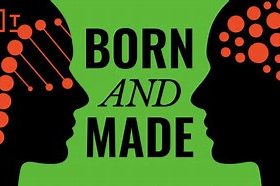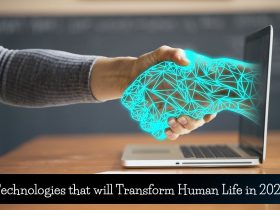At the highly anticipated SIGGRAPH 2024 conference, Mark Zuckerberg, CEO of Meta, and Jensen Huang, CEO of NVIDIA, engaged in a thought-provoking discussion about the future of artificial intelligence (AI). The conversation delved into the profound ways AI is being integrated into a wide array of platforms and technologies, reshaping industries and transforming user experiences. Zuckerberg and Huang shared their insights on the transformative potential of generative AI, the ongoing evolution of AI models, and the development of innovative AI tools designed to empower creators and businesses alike.
One of the key topics addressed was the growing impact of generative AI within Meta’s ecosystem. Zuckerberg explained how this technology is transforming content recommendation systems on platforms like Instagram. Meta is making a strategic shift from specific, siloed content models to more sophisticated, unified AI models capable of seamlessly integrating various types of content and user interactions. This holistic approach aims to deliver a more personalized and engaging user experience. For instance, a unified AI model could intelligently recommend a curated mix of photos, videos, and text posts tailored to each user’s unique preferences, making content discovery more intuitive and immersive.
The discussion also highlighted the rapid advancements in AI tools designed for creators. Zuckerberg introduced AI Studio, an innovative platform that empowers creators to build AI versions of themselves. These AI avatars can interact with communities, providing a more personalized and scalable way to engage with followers. Moreover, AI agents for businesses are being developed to handle customer interactions, sales, and support. These sophisticated AI agents can simulate challenging social situations, offering valuable practice and feedback to enhance human interactions and improve overall customer experiences.
Meta is shifting to unified AI models that integrate various content types and user interactions
AI Studio allows creators to build AI versions of themselves to interact with communities
AI agents for businesses are being developed to handle customer interactions, sales, and support
Throughout the conversation, Zuckerberg emphasized Meta’s unwavering commitment to open-source projects, such as PyTorch and Llama models. These initiatives have played a pivotal role in advancing AI research and development, fostering a vibrant ecosystem and driving cost savings. By making innovative technologies accessible to a broader audience, open-source initiatives democratize innovation and encourage collaborative progress. Zuckerberg passionately advocated for the importance of open platforms in shaping the future of computing and social experiences.
The Rise of Smart Glasses and Mixed Reality
Looking ahead, Zuckerberg and Huang explored the immense potential of smart glasses as the next computing platform. The integration of AI into smart glasses promises to transform user experiences, allowing live streaming, virtual meetings, and immersive interactions. The future holds even more exciting possibilities with the development of holographic AR glasses. These stylish, wearable devices will seamlessly blend into daily life, offering users a new level of engagement with digital content. As these advancements unfold, they have the power to redefine how we interact with technology and each other.
The discussion also delved into the crucial role of AI in business integration. The AI Foundry initiative aims to empower businesses to build and own their AI models, maintaining a competitive edge and optimizing operational efficiency. Zuckerberg and Huang envision a future where every business has its own AI agent for customer interaction, streamlining processes and elevating customer service. These AI agents could handle routine inquiries, freeing up human employees to focus on more complex and value-added tasks.
Smart glasses with AI integration are set to become the next computing platform
Holographic AR glasses will offer stylish, wearable forms that blend seamlessly into daily life
The AI Foundry initiative helps businesses build and own their AI models for competitive advantage
Underpinning these advancements are remarkable technological breakthroughs. The Segment Anything model for computer vision, now extended to video, represents a significant leap forward in AI’s ability to understand and interact with visual content. Custom silicon and advanced display technologies are being developed specifically for AR glasses, promising more immersive and realistic virtual experiences. The long-term vision includes allowing immersive virtual meetings and collaborative environments that will transform the way we work and connect with others.
As the SIGGRAPH 2024 discussion drew to a close, it was evident that Zuckerberg and Huang had provided a comprehensive and inspiring glimpse into the future of AI. From the integration of generative AI into Meta’s platforms to the evolution of AI models and the development of AI tools for creators and businesses, the potential for transformation is vast. The emphasis on open-source initiatives and the promise of smart glasses as the next computing platform further underscore the exciting possibilities that lie ahead. As AI continues to advance and shape various industries and technologies, it is clear that we are on the cusp of a new era of innovation and human-machine collaboration.




























Leave a Reply